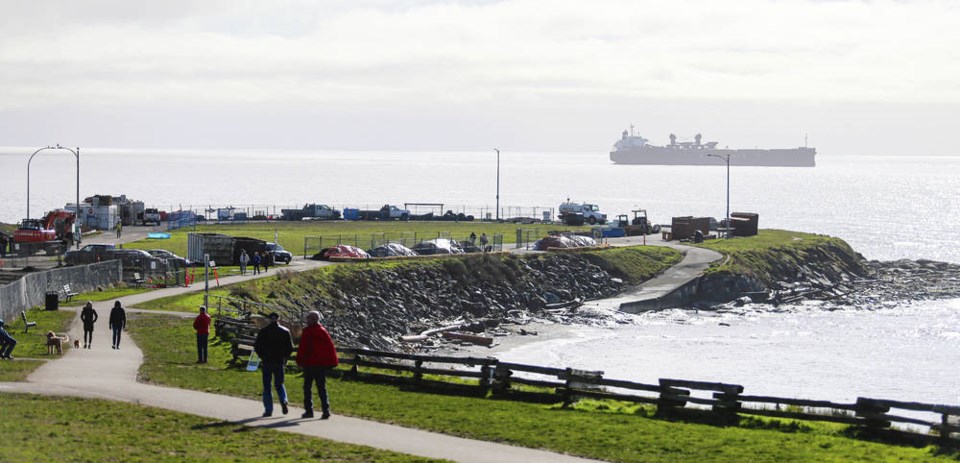Clover Point Park has been a delightful spot for more than six decades: A place to go, no matter what the weather, to marvel at the beauty of the Juan de Fuca Strait, the Olympic Mountains, ships, kites and more.
An essential part of the experience has been our ability to drive to the point, and sit in our vehicles to enjoy the views and the weather.
That is, apparently, not good enough for the people who run Victoria. They want to limit vehicular access in the belief that Clover Point should be for people, not cars — as though the people who sit in those cars don’t exist, or at least don’t count as much as the younger, healthier, less-inconvenient people in the city’s vision of an urban utopia.
It’s a bizarre way of thinking, and it is insultingly dismissive of a large proportion of the population.
That doesn’t matter to city council, which appears determined to reduce public access to the park.
The first plan was to close the loop to cars, reducing parking capacity by about 73 spaces. That was sent back to city hall staff a couple of weeks ago following a huge public outcry.
Thursday, council will consider new options that will still boil down to a substantial reduction in vehicular access. The idea is to give, according to the document being presented to council, “citizens on foot, on bike or using mobility aids exclusive access to the waterfront in the park.” That language borders on the Orwellian, given that a car, for all its faults, is the most practical mobility aid of all.
In other words, if you are in the habit of driving to the point — if you have been waiting patiently for the construction at Clover Point to end so you could go return to a favourite spot — you will find yourself playing musical chairs for one of the spots left for cars.
City council has already severely restricted access to Beacon Hill Park, again with the argument that closing roads has made it easier to use the park — which it has, for able-bodied people who live within walking distance. Otherwise, it has effectively discouraged use of what used to be a regional gem.
Likewise, downtown Victoria has become more of a constricted maze, again with the theory of improving access; the irony is that in reducing the capacity of the roads to handle traffic, the city has made congestion worse.
The timing of the Clover Point discussion is suspect. As the COVID-19 pandemic continues, everyone in Greater Victoria needs safe places to go for mental-health breaks. What could be safer than going to Clover Point, where you could stay in your own vehicle?
And no, Clover Point has never been a parking lot. A parking lot is a place where you leave your vehicle while doing other things. Clover Point, as traditionally used, is a viewpoint for those who come by car because, without vehicles, their access to the park would be impossible.
Yes, other people, the ones fit enough to walk down to the point and back up again, might take their places, on nice days at least, but there is no way for city council to disguise the fact that its plan is to prevent traditional users of Clover Point from going back there.
Again, the timing is suspect. The city claims that it wants a quick decision so changes can be made as Clover Point is rebuilt after the work needed by the sewage treatment project.
Beware any long-term decisions made under an artificial deadline. The city had two years to tell us about this, yet left it until the last minute. Why?
Every week, it seems, Victoria is trying to antagonize people who have lived here for years, as though impatient to clear out the older, the infirm and others whose lives don’t fit neatly within its vision — an odd choice for a city with one of the highest proportions of seniors in Canada.
It’s great to encourage cycling, walking and healthier alternatives — but it’s also great to do so in a way that doesn’t create winners by turning other people into losers.



